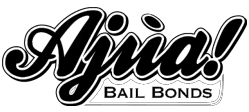When you hear the terms bail and bond, most people think these words are interchangeable. However, a bail and a bond are two separate concepts. It can get confusing trying to separate bail and bond as they are also very similar. To better understand these terms, Ajua Bail Bonds would like to define bails and bonds, and the different types of bonds there are.
Bail VS Bond
If you have been arrested, both bail and bonds are the alternative to spending the night or days in jail. In a sense bail and bond are similar as they both help get a person out of jail. Both bail and bond have certain conditions and terms that the defendant must take seriously to avoid suffering any reprisals. When using a bail or a bond, the defendant also assures the court they will show up at their scheduled court date. In this way, both bail and bonds are very similar. However, they are very different. One of the major differences between a bail and a bond is who is paying the court. When a defendant pays the bail, they are covering the total cost of the bail which was set and determined by the judge. A bond is when the defendant cannot afford to pay bail themselves and will seek an agreement with a bondsman. The bondsman covers most of the bail and the defendant usually only has to pay a certain percentage. When paying bail, you must also use cash, where a bond agreement can be paid in a number of different ways.
Types of Bonds
Surety Bond – A surety bond most often referred to as a bail bond, is when a third party agrees to assume responsibility and payment for the defendant. A surety bond pays for the bail and ensures the court the person is not a flight risk and will appear before the court. If the defendant fails to comply with the terms of the bail, the third party is then liable.
Property Bond – A bond can be paid in many ways, and one way is in using collateral. In this case, one is giving the property’s title to the bond agency. The property must be of equal or greater value than the bail in order for the property to be used as collateral. As long as the defendant complies with the terms of release and appears in court on their scheduled date, the property title will be returned. Failure to appear in court, will result in the defendant losing the property title, which then becomes the government’s property.
Cash Bond – Cash bond or bail is basically the same thing. When the defendants has enough cash to pay for their bail, the defendant will give the cash directly to the court. Cash bond can be paid by the defendant or even by a family member or friend.
Personal Bond – A personal bond is more unique, in the sense that no money or form of payment is given. Instead, it is a written agreement to appear in court. Personal bonds are based on good behavior, the violation, and usually for first time offenders.
Bail Bond Services in Clovis, Reedley, Sanger, Selma, Atwater, Los Banos, Merced, Visalia, Porterville, Tulare, Hanford, Corcoran, Lemoore, Fresno and the Central Valley of California
Bail and bond are very different and yet similar in many ways. If you need help paying for a bail and need a bail bond, contact Ajua Bail Bonds today.

